Behind the scenes at Tencent
Tencent is one of the largest video-game companies in the world. In addition to running various studios in China, it wholly or partly owns dozens of game companies across the globe, including Riot Games, Funcom, Sumo Group, Turtle Rock Studios, Techland, Supercell, Don’t Nod, Epic Games, and most recently Ubisoft.
But Tencent has also earned a reputation for being somewhat secretive. So having the chance to chat with Yong-yi Zhu, VP and head of business operations, strategy, and compliance at Tencent Games, is a rare opportunity.
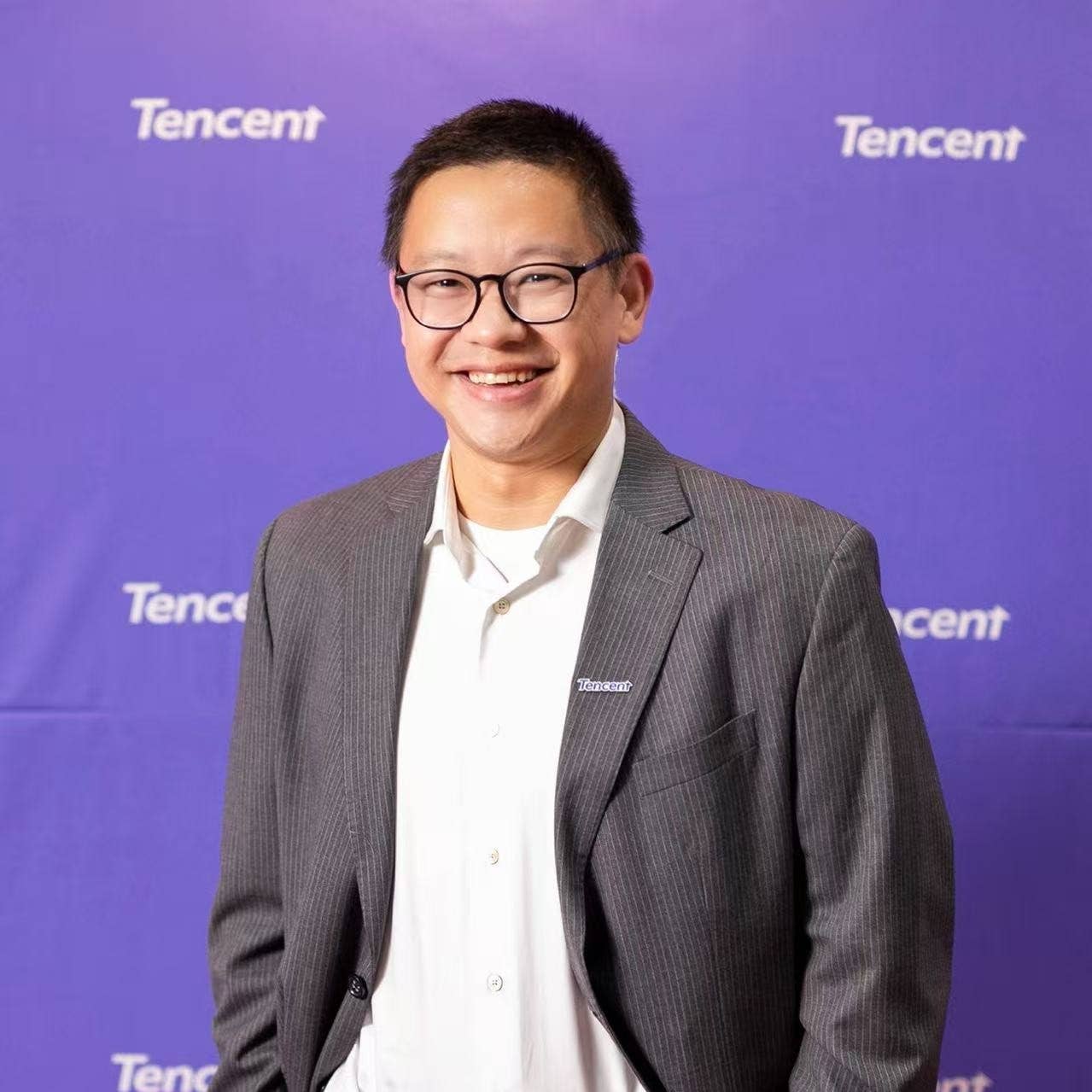
Zhu says that Tencent is making an effort to be more open – noting that this interview is part of that effort. “I think there is a point now where we want people to better understand who Tencent are, what we’re doing, why we’re doing the things that we’re doing,” he explains.
Part of the reason for that is to attract talent to the company. “I think before, maybe it was a bit of a black box,” Zhu says. He himself says he “didn’t really have a good perspective” on what Tencent was actually like before he joined (previously, he was vice president of studio operations at Activision).
Tencent’s aggressive acquisition strategy over the past decade or so – against a backdrop of anti-China sentiment among US policymakers – has perhaps made some people in the West a little wary of the company. But Zhu notes the firm’s image is completely different on its home turf.
Zhu is American, although he’s from China originally, and he says his family have very positive associations with Tencent. “Not so much from the games perspective,” he clarifies, “but from everything that Tencent does to support their day-to-day lives, including WeChat and WeChat Pay, and things that I think 15, 20 years ago people would’ve thought would be crazy for those in China to have access to.”
However, he acknowledges that attitudes to Tencent might not be the same elsewhere. “I think the reason why people might be more wary is we are not very public,” he says. “We tend to keep to ourselves.” Tencent’s work is in the background, supporting studios, he says, rather than in a public-facing role.
“We put the developers and the talent first.”
A broad remit
Zhu is based in California, and he works with around 20 studios in Tencent’s portfolio, mostly based in Europe. His role involves things like board meetings, discussing budgets, and greenlighting development phases.
But the time zones are a killer. “I start the day very early, so six, seven o’clock in the morning,” he says, in order to talk with studios in Europe that are around eight hours ahead. “And then my entire team is in China and Singapore. So I work in the mornings, take a break at around lunchtime, early afternoon, and then start again around dinnertime all the way through late evening.”
“I talk to China every day,” he adds. “I talk to Europe most days.”
But with so many different studios under his remit, how is he able to keep up with everything? He says it typically comes down to prioritising different studios according to launch timings. “Like, Dying Light: The Beast is going to be really high on my priority list right now,” he says, referencing Techland’s just-launched survival horror game.
“The other thing is we have teams that work directly with the studios on a more regular basis, so they kind of understand [their challenges]. For me, I’m very central. I look across everyone, and so there’s no way for me to kind of understand the nuances of what’s happening at every studio.”
Inevitably, the bigger or higher priority games tend to get the lion’s share of his attention. “So probably across two, three months, maybe a quarter, we kind of look at everybody, but a disproportionate percentage of my time will be focused on the bigger ones with more potential, or the immediate ones that are kind of coming up.”
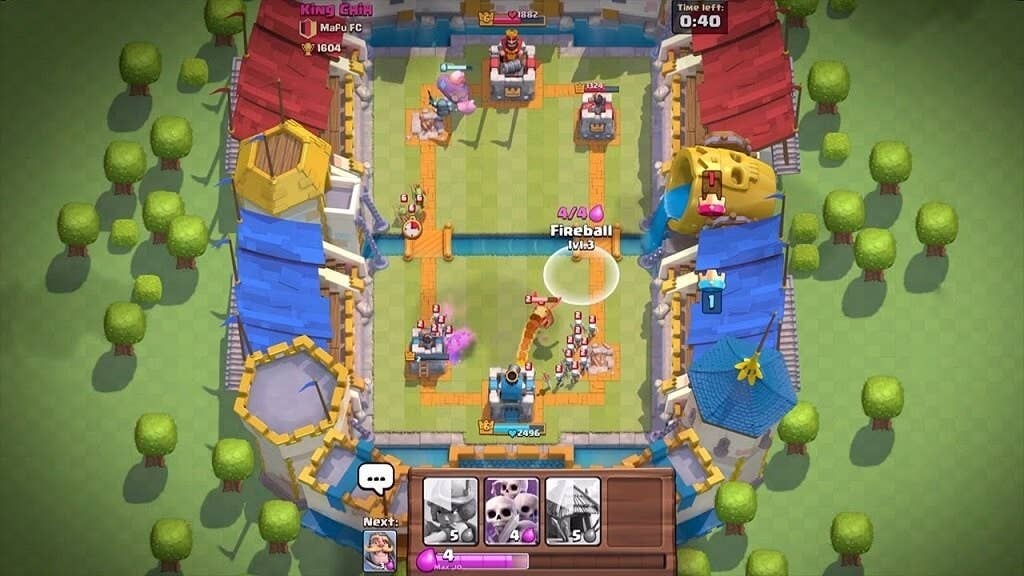
We ask whether there’s any kind of pattern in Tencent’s diverse acquisitions, which in Europe include everything from the mobile developers Miniclip and Supercell to the co-dev specialist Sumo Group to the Dune: Awakening creator Funcom.
“When I first came here, I was like, ‘Whoa, this is a big group of really random stuff’,” admits Zhu. But if there’s a link, he says, it’s that they’re all good developers. “It’s people that have been in their craft for a long time that are passionate about reaching new audiences, building new experiences, doing somewhat risky stuff that they’ve never done before.”
Western commitment
Earlier this year, Tencent’s Chinese competitor NetEase conducted layoffs at a US support studio for the smash hit Marvel Rivals and closed down the Austin-based T-Minus Zero Entertainment, leading to fears that NetEase is scaling back its interests in Western studios.
What about Tencent? Does it intend to maintain its Western presence?
“I will speak from the perspective of my division,” replies Zhu. “We have no plans at the moment to pull out. You may see a reduction in investment in certain places, and I think part of that is just the realities of the industry and the dynamics of the industry.”
He thinks that in the future, the key will be developing new IP, gameplay, and audiences – but fostering that kind of innovation will take time and judicious investment.
“If you’re doing a sequel, it’s relatively predictable what the development timeline is, what the innovation timeline is,” he says. But when a project is “more unknown,” when “we don’t know if there’s fun yet, we don’t know if the technology works yet,” he thinks Tencent has to ensure its investment level is smaller.
“One of the mistakes the industry has made in the past was investing too quickly”
Yong-yi Zhu, Tencent Games
“I think Tencent in the past has been more about taking a game that from a publishing standpoint really works and really amplifying that. As we’re doing more and more bespoke development for the West, it’s going to take a bit more time, and so that sometimes means keeping the core dev team smaller.
“Part of it is to control cost, but part of it’s also to be a bit more nimble, have more iteration, try things faster, see what works, see what doesn’t. And then once we get to a stage where, hey, everything is clicking, we have all the boxes checked, then we can really amplify.
“So it’s more about being more disciplined across our different phases of development, less so about just overall pullback, if that makes sense.”
He continues: “I think maybe one of the mistakes the industry has made in the past was […] investing too quickly, going too big, letting teams get too large. People have a vision, but until you perfect that vision and know exactly what you’re doing from today to the end of the project, you still need to be a little bit cautious.”
We’re interested in what level of control Tencent exerts over its many wholly or majority owned Western studios. Is Tencent involved in day-to-day operation, or are studios given free rein?
Zhu says the studios are “mostly autonomous.” He adds that he can’t speak for Riot Games, because he doesn’t work with them directly, but he gives the example of the UK-based Sumo Group, which comes under his remit.
“We help them set strategic direction,” he says, “whether it’s in budgeting or it’s in their slate or it’s in […] providing information on [the] market and trends and things like that.”
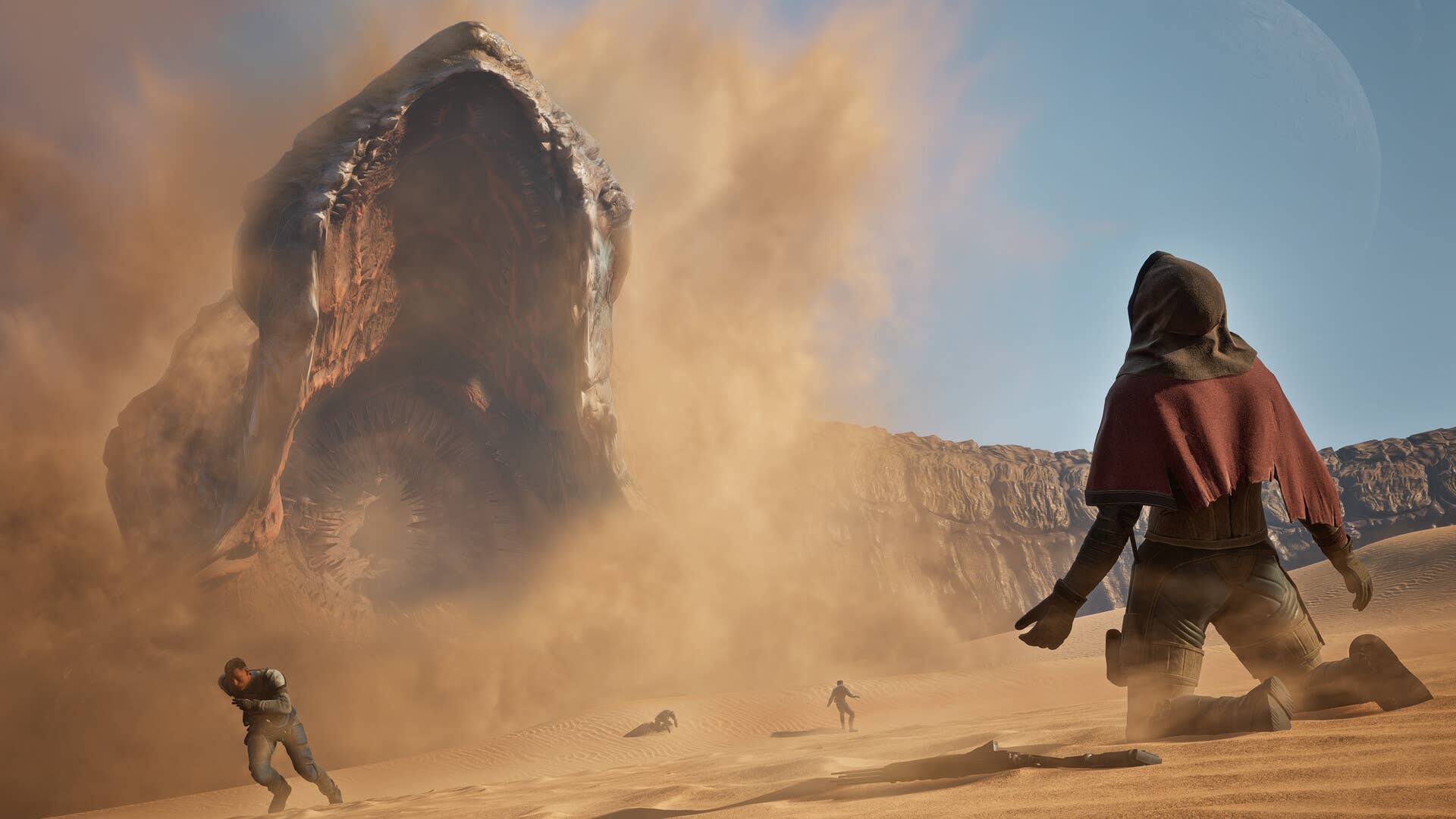
He gives another example of how Tencent worked with Funcom for the launch of Dune: Awakening. “They have their own internal expertise, they published games in the past, they have a development team, but at the same time, they have never launched a game of this scale. So we had our tech teams go and visit Funcom and sit there and work with them on backend technology, on servers and things like that, to make sure everything was stable. And also we can help them scale in that regard.
“And then on publishing, they had expertise in certain geographies, and for us, we had expertise in others, so we partnered together to figure out how we reach more of an audience across the world.”
China ascendent
Right now, we’re at an interesting point in the games industry where Chinese developers are very much on the rise, thanks to mega hits like Black Myth: Wukong and Genshin Impact. The announcement of a Black Myth sequel stole the show at Gamescom Opening Night Live, and the upcoming China-developed titles Where Winds Meet and Blood Message look set to be huge hits.
Zhu thinks there’s the opportunity for cross-pollination between East and West. “One of the things we [talk] a lot about internally is ‘how do we pair up Chinese developers with our Western developers?'” he says.
“I think Western creatives have a very strong point of view on […] what the gameplay looks like, what the innovation is. But then the Chinese dev teams can either bring more horsepower or more innovation, more understanding of Asian markets as a whole.
“How do we pair up Chinese developers with our Western developers?”
Yong-yi Zhu, Tencent Games
“It’s symbiotic in that sense. […] Together you’re going to create a culturally more relevant game across the globe.”
Zhu says Tencent doesn’t have anything it can share publicly at the moment, but it’s in the process of spinning up some Chinese support teams, with the idea of tying Tencent’s Western and Chinese arms together more closely.
“There’s certainly challenges,” Zhu says, “whether it be language, or time zone, or cultural differences.” But his role is partly about breaking down the barriers between the two sides. “I think more and more we need people to be able to bridge that gap.”
Zhu also sees big opportunities for growth in China, particularly on Steam. “I was recently at a talk where we were talking about why the Chinese population on Steam has grown so much,” he says.
“Part of that was during COVID, people were required to have computers and laptops for education, and so suddenly all these people had access to a gaming platform. So for us, it’s like, ‘Okay, there’s an opportunity there, how do we reach that audience?'”
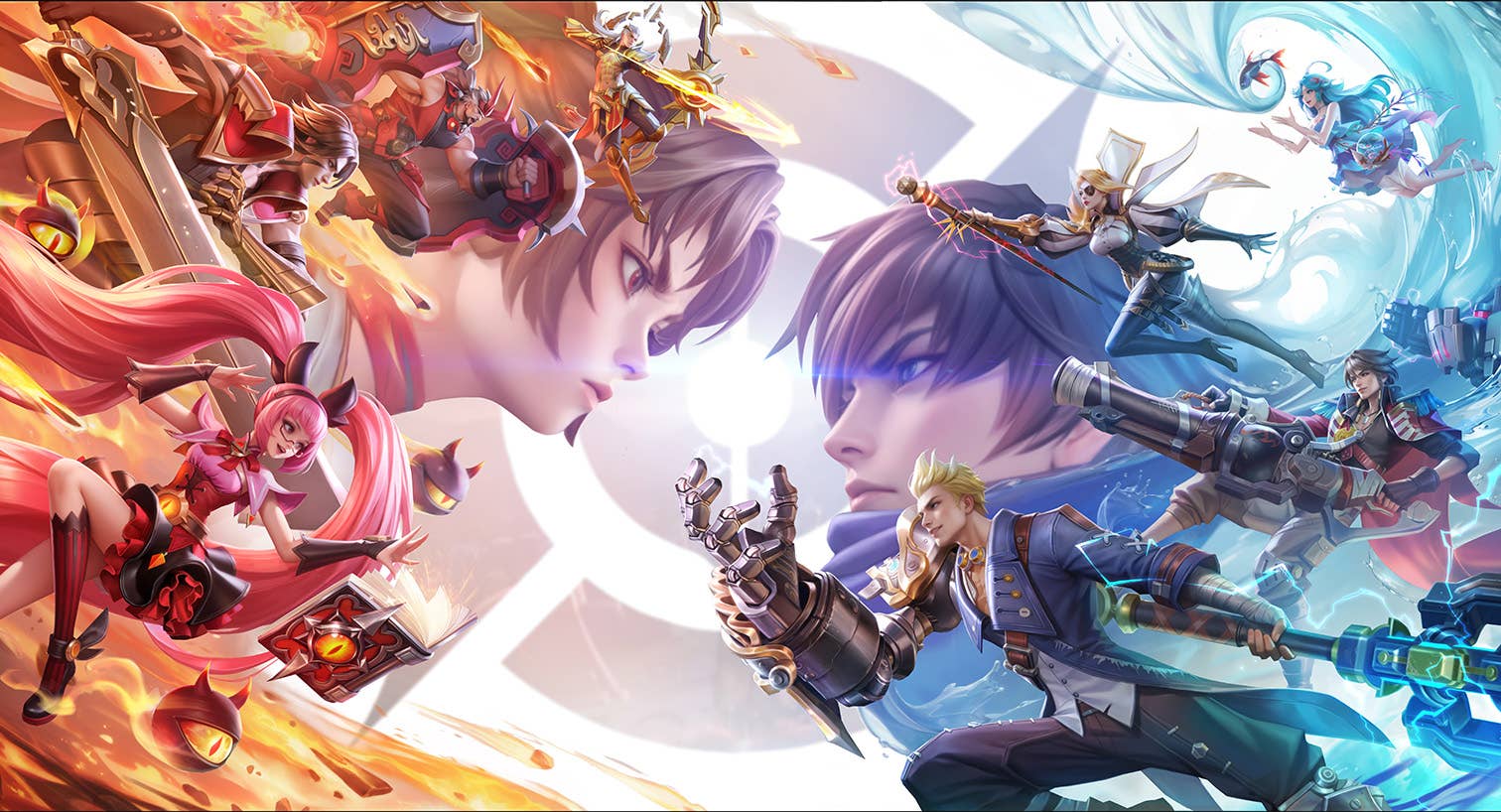
But he sees opportunities for growth everywhere, pointing to the success of new IPs like Blue Prince, Balatro, and Clair Obscur: Expedition 33. And he thinks that it’s not necessarily about tailoring games to an Eastern or Western audience, noting the success in the West of games focused on China-centric themes, like Honor of Kings and Black Myth: Wukong. Equally, the European-centric Kingdom Come: Deliverance 2 has a large player base in China.
“I look at it more as audiences of gamers rather than any specific geography. Obviously some geographies are more tailored to certain types of games, but I think for me it’s more about gameplay first over everything else. So we look a lot at what genres have growth potential as the first cut rather than geography or other things as the first cut.”
Live service
Some of Tencent’s biggest titles, like League of Legends, are centred around live service. But given the recent souring of attitudes towards live service following the failure of big new titles like Concord, what is Tencent’s current approach to the sector?
Zhu acknowledges that the “holy grail” of a lot of games is to be “evergreen if not necessarily live service,” but he says that the strategy depends on whether the studio has the necessary experience behind it.
“Some studios may be ready for that big step into live-service games and developing evergreen games because […] they’re experts in their craft and in their genre.”
He gives the example of From Software, saying the studio had to develop its craft over several games before taking on the huge open world of Elden Ring, which he thinks would have been nowhere near as successful had it been their initial effort.
“We don’t only green light games-as-a-service games”
Yong-yi Zhu, Tencent Games
“But because they had the understanding of the genre and of the player base to know what works with people [and] what doesn’t work, […] it has become a success.
“And so for us, it’s about crafting that journey for all of our studios. We don’t only green light games-as-a-service games: we have a mix.
“Some games, we feel like studios are ready to go really big and to build something that lives forever. […] Other studios, we feel like, hey, it’s still on the path to building that muscle.”
He adds that it also comes down to genre. “Take a look at [the] shooter space, right? Very crowded, very red ocean, and unless we have a dev team that is absolutely perfect for that market, I don’t think we would green light a shooter, because we feel like it’s too difficult.
“Now, other areas, other genres where we feel like it’s not as mature, the market’s not as big as we might expect it to be, or there’s not enough innovation or not enough perfection on gameplay, that’s where we would focus.”
AI and the PC future
Finally, we ask how Zhu thinks the games industry will evolve over the next five years.
“The biggest [trend] that everyone talks about is AI and its integration into game development,” he says. “There’s a lot of negative perspectives on AI. I think for me, it’s enabling developers to build better worlds and more interesting worlds in an efficient way.”
In this respect, he thinks it might be useful in the very early stages of game development, when a small, core team is working on defining the project. “I think with AI, you’re able to do more art exploration, even if you don’t have an army of artists.”
He adds that it’s also useful for things like code review, “where you can have the AI check whether your code’s going to break the game,” and notes that in the future, it might even be useful from a design perspective – cautioning that “I don’t know if we’re there yet.”
“With AI, you’re able to do more art exploration”
Yong-yi Zhu, Tencent Games
“Once we get into [the] production phase, it has other benefits of being able to help us iterate faster, create more content, [and] not be as reliant on large teams to be able to execute on things.” All in all, he sees AI as being about “doing more with smaller teams at the early phase and then increasing the quality bar once we get into true production.”
Rather than replacing jobs, he thinks it’s a case of utilising people who are “well-versed in leveraging AI” to raise the quality bar, giving the example of a developer using AI to quickly iterate an open-world map to find the “coolest gameplay pattern.”
He stresses that developers need to keep up to date with the AI tools being introduced (Tencent, for example, has recently debuted an AI creation tool called VISVISE), and emphasises that they shouldn’t be “blind to the technology that’s going to come and support us. It’s like [if developers] didn’t know how to use Macs or Maya, they’d be way behind. If they’re like, ‘No, I only draw art on paper and pencil’, or something like that. Same thing.”
Outside of AI, he thinks a key focus will be creating games that run on lower-spec devices. Partly that’s about reaching growing audiences in places like Southeast Asia, or the LATAM and MENA regions.
He gives an example: “Call of Duty Mobile is very much focused on high-end devices, and for us, PUBG Mobile is very much focused on low end devices,” he says, noting the focus should be: “How do we get this game in the hands of as many people as we can?”
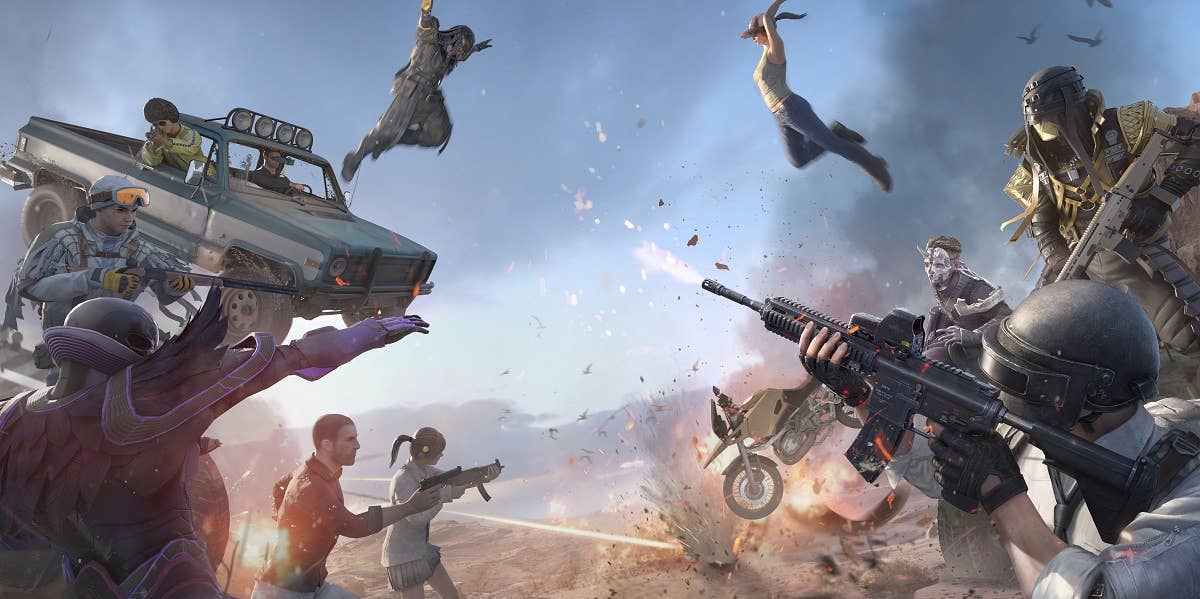
Likewise, as the PC audience gets bigger, he thinks that “we need to worry a lot about min spec […], so that people around the world can have access to our games.”
However, he acknowledges that this goal will depend on the title. “The PC folks are always super focused on a million frame rate and things like that. And that may be right for some games, where they’re really highlighting the cutting edge of technology.”
Overall, Zhu thinks we might see the future tipping away from consoles and towards mobile and PC, noting that the latter is already favoured by many of Tencent’s developers owing to its speed and flexibility when it comes to things like patches.
“I think one of the biggest benefits of consoles in the past was it was an affordable way for people to have access to gaming,” he says.
“Now, we have more and more affordable mechanisms – whether it’s my mobile phone, whether it’s my PC – and as PC prices continue to come down and developers focus on min-spec PCs, and if consoles continue to get more and more expensive […], they will certainly start to compete with one another.”

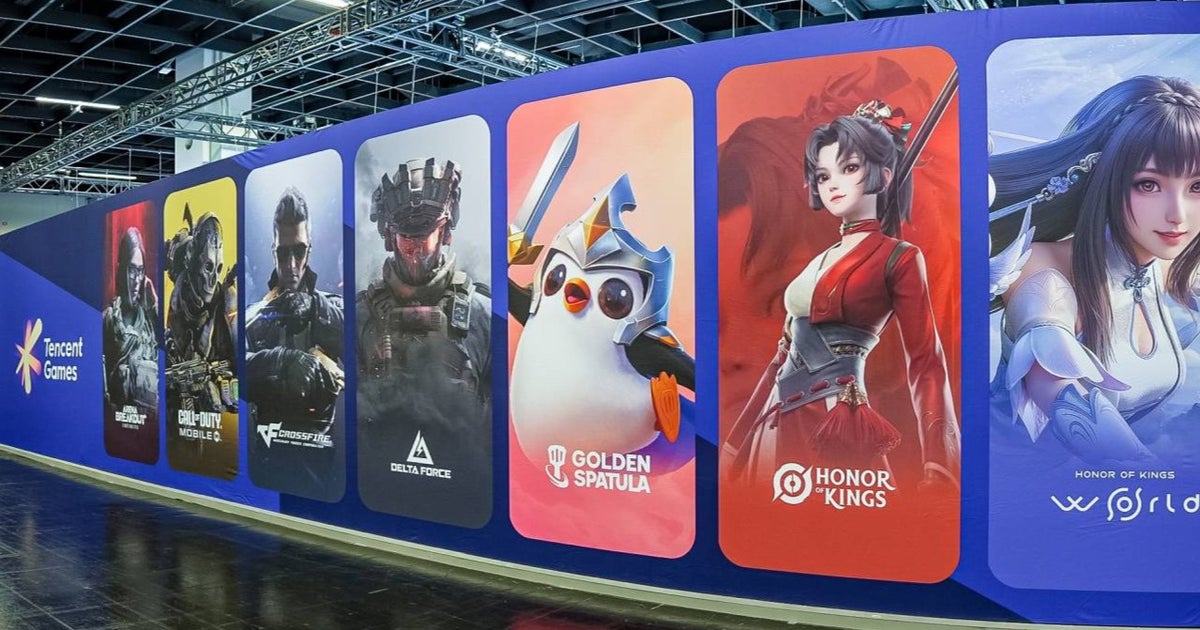


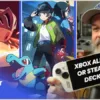



Add comment